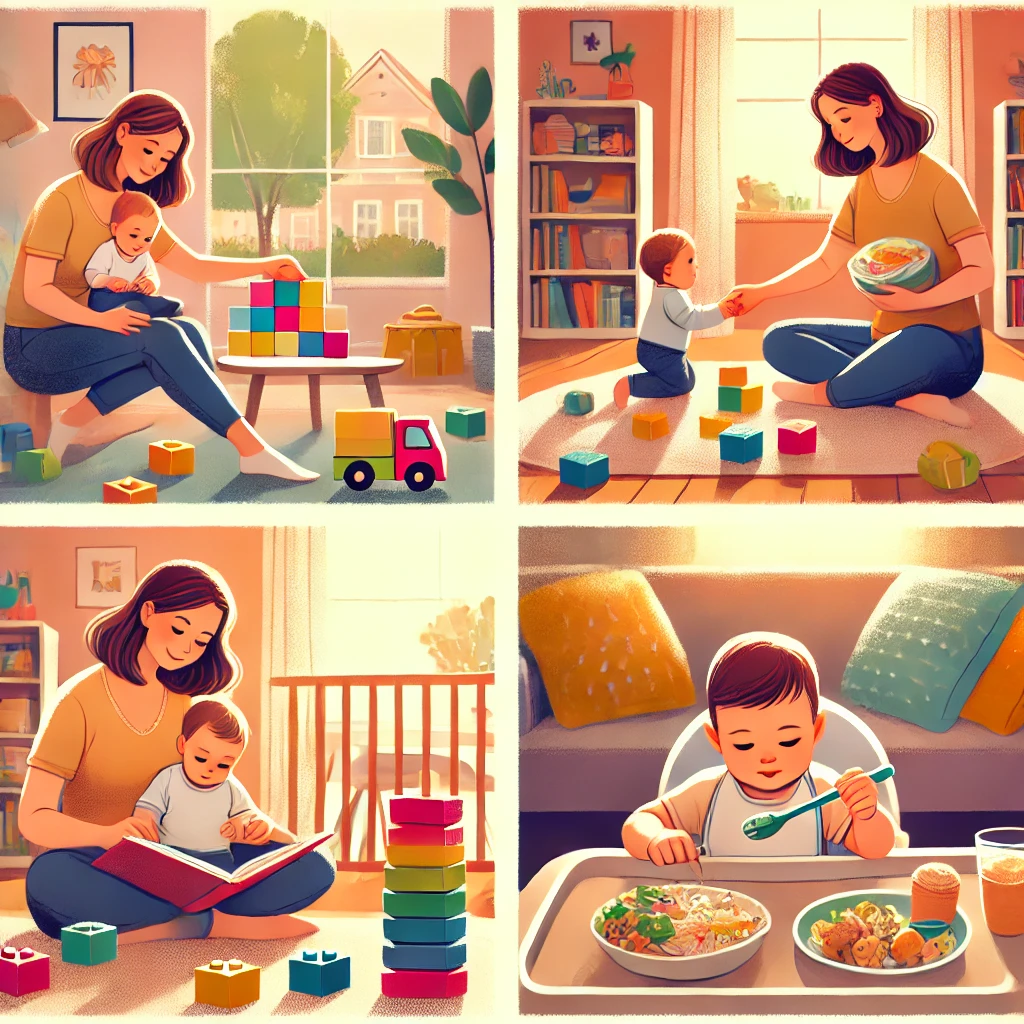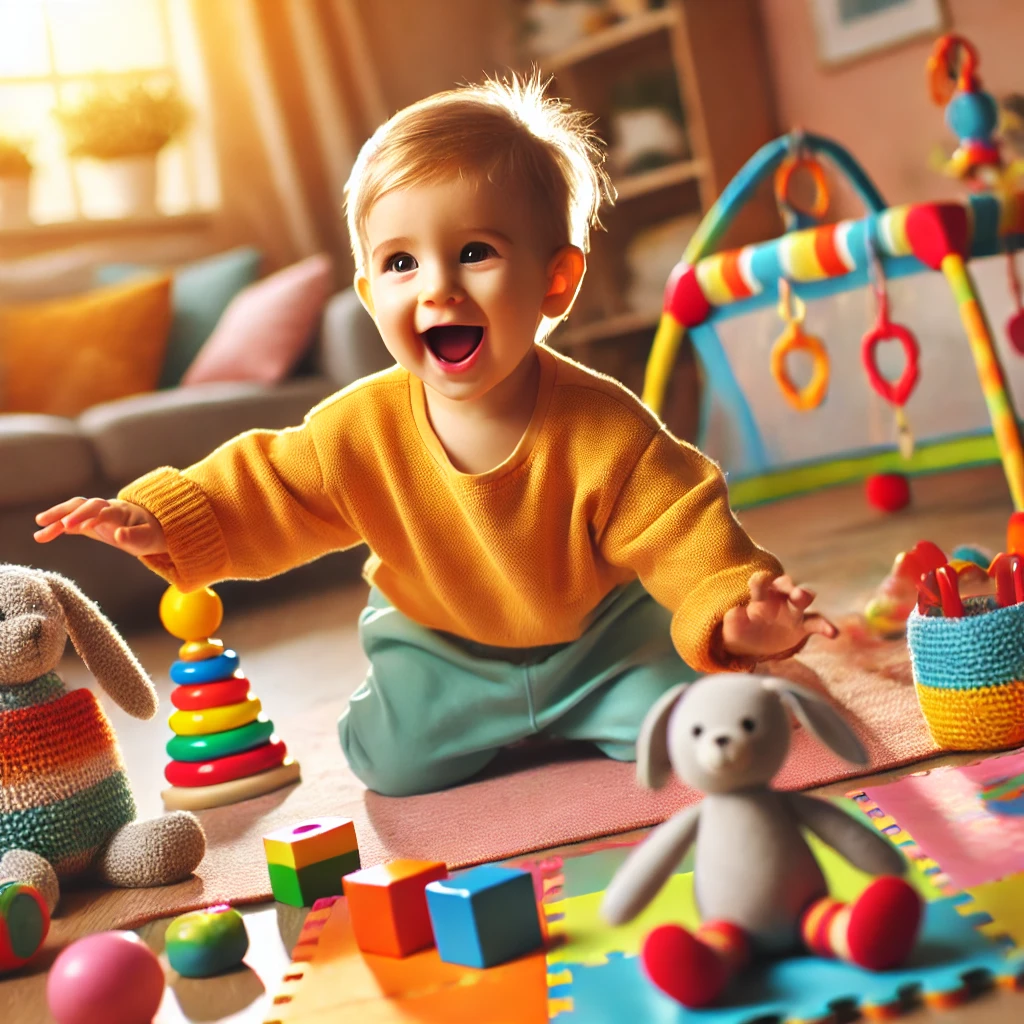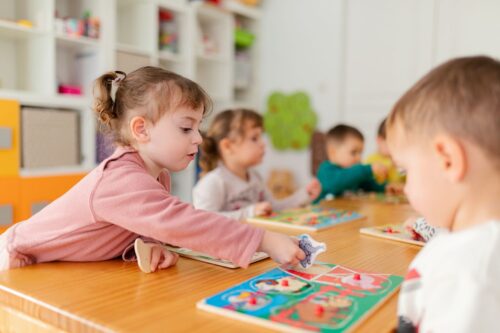A Guide and Tips for Parents
The toddler and preschool years are filled with exciting milestones and developmental changes. During this time, children are rapidly learning to communicate, explore their world, and assert their independence. Parenting through this stage can be challenging but also incredibly rewarding as you witness your child’s growing curiosity and skills. Below is a guide to help parents navigate these formative years with practical tips on nurturing physical, emotional, and social development.

1. Encouraging Independence
At this stage, toddlers and preschoolers are eager to do things on their own. Whether it’s putting on shoes, feeding themselves, or making simple decisions, allowing your child to take charge of age-appropriate tasks builds confidence and independence.
- Tips:
- Offer simple choices to help them feel in control (e.g., “Would you like to wear the red shirt or the blue shirt?”).
- Encourage them to try doing tasks by themselves but be nearby to offer support when needed.
- Create routines to give them a sense of predictability, which helps reduce tantrums and power struggles.
2. Managing Tantrums and Emotions
Tantrums are a natural part of toddlerhood and early preschool years as children learn to manage their emotions. Since they are still developing language skills, they may express frustration or anger through crying, hitting, or throwing things.
- Tips:
- Stay calm during tantrums and avoid reacting with anger. Instead, acknowledge their feelings: “I know you’re upset because you wanted to play longer.”
- Teach simple words to express emotions, like “sad,” “mad,” and “happy,” so they can start identifying and communicating their feelings.
- Use distraction techniques to shift their focus when a tantrum is brewing or offer a calming activity like reading a book together.
3. Promoting Language Development
During the toddler and preschool years, children undergo a language explosion. They are absorbing new words daily and learning how to put sentences together. Encouraging language development is key to building communication skills.
- Tips:
- Talk to your child throughout the day, describing what you’re doing or what’s happening around them.
- Read books aloud regularly, asking questions about the pictures or story to engage them in conversation.
- Encourage your child to narrate their play by asking questions like, “What is your doll doing?” or “What color is that car?”
4. Supporting Physical Development
Toddlers and preschoolers are full of energy and constantly on the move. As they gain more control over their body, they will enjoy activities like climbing, running, and jumping.
- Tips:
- Provide safe spaces for active play, both indoors and outdoors, to allow them to practice their motor skills.
- Offer toys that encourage movement, such as balls, push toys, or ride-on toys.
- Encourage fine motor skills by engaging them in activities like drawing, building with blocks, or using utensils during mealtimes.
5. Encouraging Social Development and Play
Play is the primary way toddlers and preschoolers learn about the world around them. It’s through play that they develop social skills, learn to share, and begin understanding the concept of cooperation.
- Tips:
- Organize playdates or attend toddler groups where your child can interact with other children.
- Engage in pretend play, which fosters imagination and helps them understand social roles (e.g., playing “house” or pretending to be animals).
- Teach sharing and turn-taking, but remember that toddlers often struggle with this concept. Offer praise when they make efforts to share or cooperate.
6. Establishing a Sleep Routine
Consistent sleep routines are vital for toddlers and preschoolers. While naps may decrease in frequency as they grow, ensuring they get adequate nighttime sleep is crucial for their physical and emotional well-being.
- Tips:
- Create a calming bedtime routine, such as reading a story, brushing teeth, and singing a lullaby, to signal it’s time to sleep.
- Keep bedtime consistent, even on weekends, to help regulate their internal clock.
- Offer a security object, like a blanket or favorite stuffed toy, to help them feel safe and comforted during sleep.
7. Promoting Healthy Eating Habits
Toddlers and preschoolers can be picky eaters, and their food preferences might change often. However, establishing healthy eating habits early on is important for their growth and development.
- Tips:
- Offer a variety of healthy foods and let your child explore different textures and flavors without forcing them to eat.
- Involve them in meal preparation by letting them help with simple tasks like washing vegetables or stirring ingredients.
- Set regular meal and snack times to help establish a routine, and avoid using food as a reward or punishment.
8. Potty Training
Potty training is a big milestone for toddlers and preschoolers, but it’s important to remember that every child is ready at their own pace. Patience and consistency are key.
- Tips:
- Watch for signs of readiness, such as staying dry for longer periods or showing interest in using the potty.
- Introduce the potty in a relaxed manner, letting them sit on it even without the expectation of using it right away.
- Celebrate small successes and avoid pressuring or punishing if they have accidents.
9. Teaching Manners and Boundaries
As children grow, it’s important to begin teaching manners and boundaries. This includes saying “please” and “thank you,” respecting others, and understanding appropriate behavior.
- Tips:
- Model good manners by using polite language when speaking to your child and others.
- Gently correct behavior and explain why certain actions are inappropriate (e.g., “It’s not nice to grab. We ask before taking something from others”).
- Use positive reinforcement to praise good behavior and offer encouragement for their efforts.
Conclusion
Parenting toddlers and preschoolers can be both exhausting and exhilarating. These years are crucial for laying the foundation of your child’s emotional, physical, and social development. By providing a supportive, loving, and structured environment, you can help your child thrive as they explore their world with curiosity and confidence. Remember, every child grows at their own pace, so be patient, celebrate the small victories, and most importantly, enjoy the journey!









